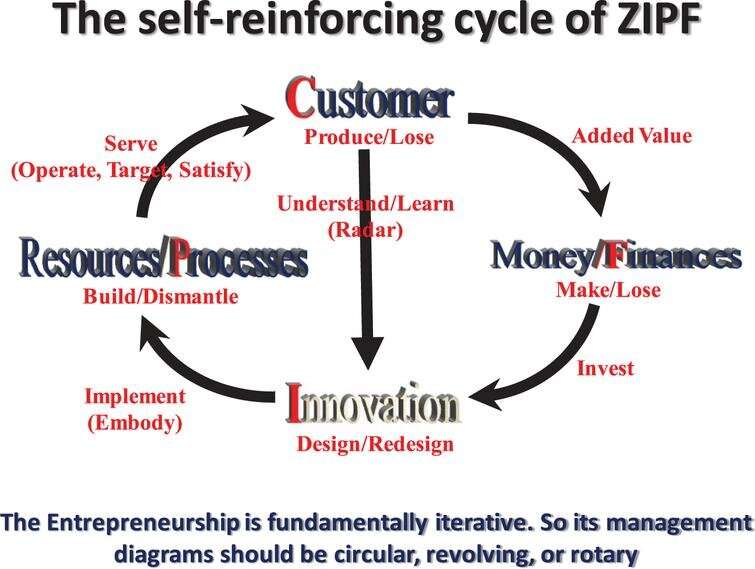#”Metamorphosis” is needed in entrepreneurship and management, pioneering economist says

“#”Metamorphosis” is needed in entrepreneurship and management, pioneering economist says”

The COVID-19 pandemic has had a profound impact on our world, with disequilibrium, uncertainty, and human suffering making it difficult to envision a human, societal and individual future. Milan Zeleny, Ph.D., Professor Emeritus of Management Systems, Fordham University, New York, NY, U.S., and world-recognized authority on decision making, productivity, knowledge management, and more recently the corporation as a living organism, says that “COVID-19 is rapidly changing from a cause to one of the symptoms of an increasingly unhinged world.”
Writing in the journal Human Systems Management, published by IOS Press, Prof. Zeleny discusses the consequences of disequilibrium across business, political, and other systems and proposes new models that may help systems evolve to succeed in the future.
“Accelerating speed of change is a natural evolutionary phenomenon, originally noticeable over many generations and now emerging within a single generation. It is the most important causal factor of our disequilibrium, yet it is virtually ignored or misunderstood by science and philosophy,” notes Prof. Zeleny. “The faster the new emerges, the more of the old that must be abandoned. This leads to resistance, political disruptions, and populist defense of the status quo. New and reliable Evolutionary Economics [a name coined by Prof. Zeleny for this new science] must be recognized.”
Economic differences between nations are fast disappearing, while inequalities in terms of local and reginal economies are widening even faster. “Well balanced regional and local economies are the only assurance of a well-balanced country or nation as a whole. New and lasting improvements can emerge by not ignoring, but by respecting and enhancing natural evolutionary tendencies,” explains Prof. Zeleny.
Other pressures Prof. Zeleny explores include conflicts between state intervention and self-organized natural response; an imbalance between rates of accepting the new and abandoning old; conflicts between the man-made and the naturally occurring world; and emerging needs for multidisciplinary education thinking, research, and action.
The most significant challenges to overcome include the protection of old paradigms, overcoming tendencies towards preserving status quo, or returning to the old “normal,” especially for political reasons.

Prof. Zeleny reviews the management system concept he developed, known as the Zeleny ZIPF, or Rotary. It rotates and revolves around customer satisfaction to drive innovation, improve processes, and achieve financial success. He also draws on the experience of the Bata Management System, now celebrating (as BSO in India) its 126th anniversary, which was organized to behave as a living organism: learning, adjusting, and self-organizing.
Prof. Zeleny asserts that in a rapidly evolving environment, additional cultural traits should be acquired within a properly run ZIPF or a similar rotary management system. For example, rapid change does not allow for a traditional strategy; you have to handle the future. He calls this the Strategy of the first step. You take the first step, evaluate the impacts, and then take the next first step. It is like every day is the Day 1!
To achieve equilibrium in human systems, Prof. Zeleny introduces the idea of Integrated Productive Environments (IPE), in which regions, localities, and communities are allowed their economic independence, self-sufficiency, entrepreneurship, and innovative originality. Such independence and self-determination, he says, will lead to cooperation, coordination, and local exchanges of specific knowledge products and services, in the interest of continued self-enhancement.
The highest IPE would be a complete town: productive, flexible, modular, fully equipped to provide food, products, and services, all in the closest proximity to regional or local customers. The first such IPE town was the Bata-Zlín in Moravia, which was “exported” all over the world, and is still functional even today.
“Such orientation requires competent cooperation of many individuals, companies, and institutions at multilayered cultural, professional and knowledge levels,” says Prof. Zeleny. “It is this kind of deep cooperation that is needed to restore regional and local equilibrium.”
IPEs are also needed in education, government, healthcare, defense, and environmental protection. “As we are abandoning the old to embrace the new, we cannot remain the narrow specialists or ‘experts.’ We have to become multidisciplinary polymaths,” he concludes.
Prof. Zeleny is the Founding Editor of Human Systems Management, which is celebrating its 40th anniversary in 2021. His article is the first in a new section of the journal, “Strategic revival of Human Systems Management.” Editor-in-Chief Nada Trunk Širca, Ph.D., International School for Social and Business Studies, Euro-Mediterranean University, University of Primorska, Slovenia, explains that articles in the new section will address how the concepts raised by Prof. Zeleny can be woven into human systems management research and applications. “The journal will continue as a self-renewing, evolving entity, open to new paradigms, new technologies, timely adaptations, and trailblazing new authors from around the world,” she says.
Russia plans return to Mars, Moon despite money woes
Milan Zeleny et al. Entering the age of accelerated change: In search of equilibrium, Human Systems Management (2020). DOI: 10.3233/HSM-209002
Citation:
“Metamorphosis” is needed in entrepreneurship and management, pioneering economist says (2021, March 22)
retrieved 22 March 2021
from https://phys.org/news/2021-03-metamorphosis-entrepreneurship-economist.html
This document is subject to copyright. Apart from any fair dealing for the purpose of private study or research, no
part may be reproduced without the written permission. The content is provided for information purposes only.
If you liked the article, do not forget to share it with your friends. Follow us on Google News too, click on the star and choose us from your favorites.
For forums sites go to Forum.BuradaBiliyorum.Com
If you want to read more Like this articles, you can visit our Science category.



